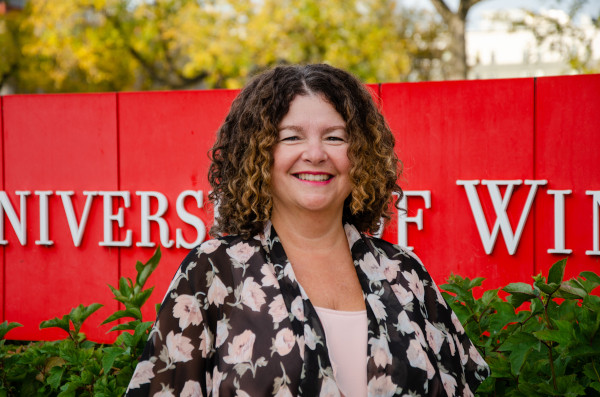Accessibility services is ready to help
Accommodations are for everyone, even without an official diagnosis

Lara Coombs, the University of Winnipeg’s accessibility co-ordinator. Supplied photo.
Oct. 15, 2021: This article has been updated to reflect new information provided by the University of Winnipeg about the need for a medical diagnosis when utilizing Accessibility Services.
Accessibility Services and accommodations play a major role in many students’ educations. Things like extended time to write tests, having a volunteer notetaker, a private testing room and more work to support a student to reach their full academic potential, regardless of the challenges they may face.
“Everybody learns differently, all of us in our lives, whether we have a disability or health condition or don’t,” Lara Coombs, University of Winnipeg’s (U of W) accessibility co-ordinator, says. “We all kind of self-accommodate through our own life, whether it’s in education or our own general life.”
The role of official accommodations is to support each student individually to ensure they can reach their full academic potential. In that way, it is a clear promotion of equity.
“The benefits of accommodation are that people are able to contribute to their full capacity,” Dr. Katherine Breward, an associate professor in the Department of Business and Economics, says.
Breward studies non-conscious prejudice and discrimination in the workplace and diversity management. She says accommodations “positively impact self-esteem, mental well-being, financial well-being, productivity and basic social justice.”
For many, it is the process of getting accommodations that can be the most intimidating step, as ableism has been built into the foundations of society, which leads to internal biases and judgment, as well as the fear of public embarrassment.
About 10 years ago, the U of W made the decision to change the name “Disability Services” to “Accessibility Services.”
The new term “is more general for the public. There is less stigma associated with that word: accessibility,” Coombs says. “When that change was made, it actually caused an increase in students registering (for) services ... it opened the door to (the fact) that we work with many different types of disabilities and/or health conditions.”
“Disability, in general, is stigmatized in our culture, which tends to evaluate worth based on shallow things like physical prowess and economic contribution,” Breward says. “People with disabilities are frequently stereotyped as being helpless, infantile, passive and incompetent – none of which is true for most people with disabilities.”
While a medical diagnosis is necessary to utilize Accessibility Services, students aren't required to share their diagnosis or the name of their disability with the university. Instead, they are asked to provide documentation from their doctor or a medical professional.
"We ask for the general nature of the disability, the functional limitations and the needed accommodations," Coombs says. "Both the students and their medical professionals provide information to us so we can develop a plan to best accommodate our students and set them up for academic success."
If you are curious about what accommodations could support you, contact Accessibility Services by phone at 204-786-9771 or by email at [email protected].
Published in Volume 76, Number 05 of The Uniter (October 7, 2021)






